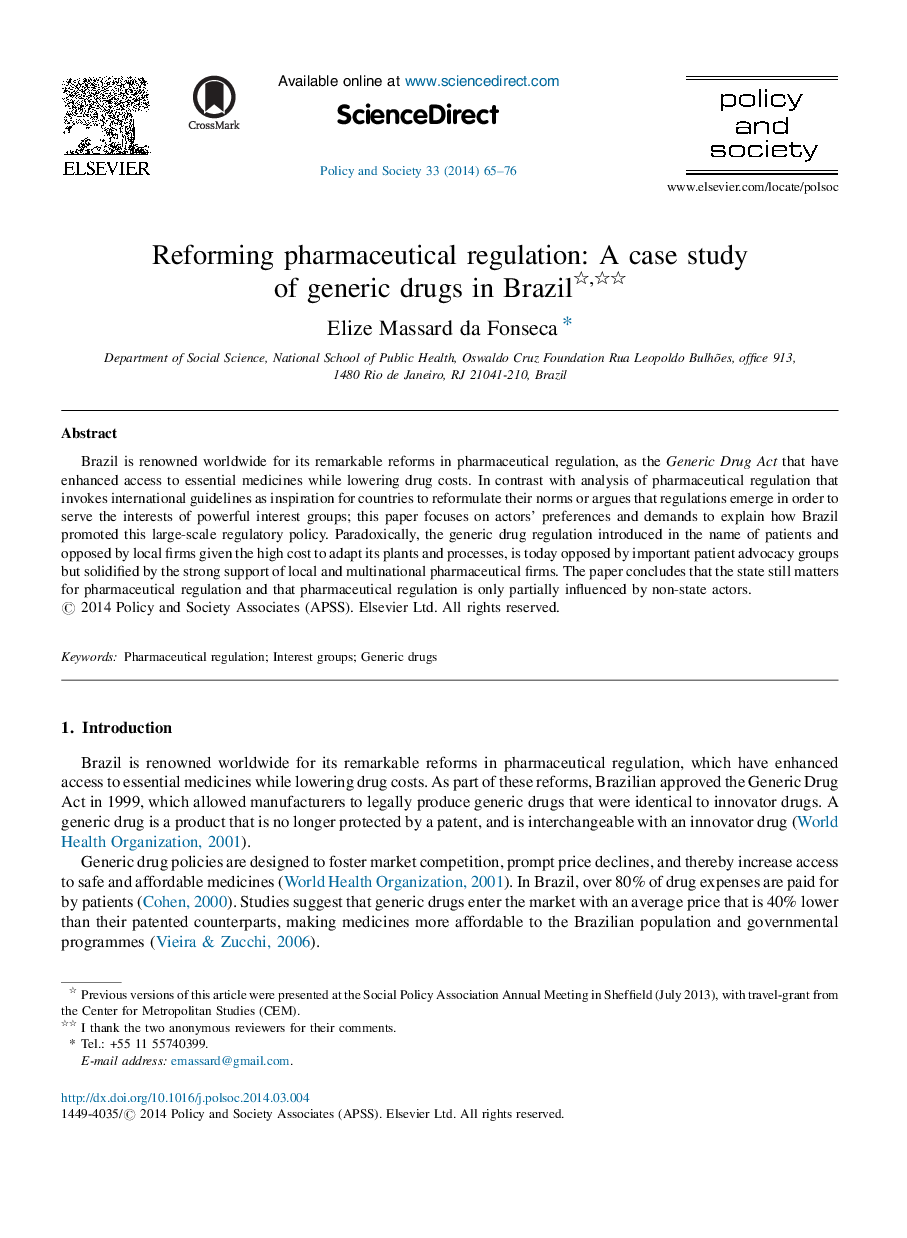| Article ID | Journal | Published Year | Pages | File Type |
|---|---|---|---|---|
| 1061501 | Policy and Society | 2014 | 12 Pages |
•I examine how and why Brazil adopted a generic drug policy spanning its origins to the most recent developments.•International guidelines or interests groups are not sufficient to explain this pharmaceutical regulatory reform.•Evolution of domestic political institutions was the most important determinant of the timing and direction of the regulatory policy.•It provides evidence on recent debates on the political construction of regulatory standards to regulate generic drugs, focusing on the case of Brazil.
Brazil is renowned worldwide for its remarkable reforms in pharmaceutical regulation, as the Generic Drug Act that have enhanced access to essential medicines while lowering drug costs. In contrast with analysis of pharmaceutical regulation that invokes international guidelines as inspiration for countries to reformulate their norms or argues that regulations emerge in order to serve the interests of powerful interest groups; this paper focuses on actors’ preferences and demands to explain how Brazil promoted this large-scale regulatory policy. Paradoxically, the generic drug regulation introduced in the name of patients and opposed by local firms given the high cost to adapt its plants and processes, is today opposed by important patient advocacy groups but solidified by the strong support of local and multinational pharmaceutical firms. The paper concludes that the state still matters for pharmaceutical regulation and that pharmaceutical regulation is only partially influenced by non-state actors.
